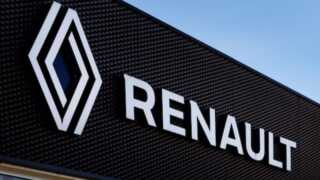Follow us today…
There comes a time in every gearhead’s life when the priorities start to shift. Maybe it’s a back twinge while climbing into that slammed sports car, or maybe it’s the second time in a year your mechanic says,
“Well, that’s gonna be another grand.”
Call it maturity, pragmatism, or just the cold slap of reality, but there’s a moment when even the most ardent car guy considers a new path. And sometimes, that shift isn’t defeat, it’s just clarity.
A recent post in a Lucid Air Facebook group made waves with its straightforward math and honest reflection: when it comes to high-performance cars, cost isn’t always about the sticker price; sometimes it’s about what comes after.
“Just in case you’re on the fence about buying a Lucid versus a new Corvette or any other exotic gas-driven car. Here are some cost comparisons between my C-8 Corvette and my Lucid.
I have 72,000 miles on my Lucid maintenance costs zero. I put new tires on it at 70,000 miles. I never rotated the old tires, but driving across the desert from Phoenix, I hit a piece of metal with the left front tire and took a chunk out of it the size of a silver dollar. The other three tires actually still looked pretty good, but I put four new ones on anyway.
I only have 40,000 miles on my 2020 C8, but for purposes of comparison, let’s calculate the maintenance costs for driving it 70,000 miles.
I would need seven oil changes at $150.00 each. $1,050.00
I would need two transmission oil changes at on the low
End $600.00 or if the internal filter needs replacing $1,600.00
So let’s assume that it would needat least one at $1,600.00.
The total cost for transmission maintenance. $2,200.00
I replaced the tires at 35,000 miles. Since the cost of tires on both my cars is approximately the same, I will only add the cost of one extra set of tires on the Corvette. $1,600.00
So my maintenance costs for 70,000 miles on my Corvette are
$4,850.00 more than my Lucid. Then, when I add the additional cost for 70,000 miles of premium fuel, the advantages of an EV Lucid are substantial.
Now the fossil fuel advocates will say But look at all the time I save not waiting to recharge. Most people who have a charger in their garage never have to charge elsewhere unless they’re on a long road trip.
Even then, if you’re like me, making long trips all the time, I only charge while I’m having breakfast or lunch and taking a toilet break, so no appreciable time is lost. If you consider the many hours I have spent taking my Corvette in for oil changes, I probably waste far less time charging than taking care of my Corvette.”
On one hand, the C8 Corvette: mid-engine, V8 thunder, the distilled spirit of American performance. On the other hand, the Lucid Air: a whisper-quiet electric sedan that accelerates like a McLaren but costs next to nothing to maintain. Schell’s tale is the new car-guy crossroads: not abandoning horsepower, but finding a more logical way to harness it.
Lucid Air Battery Specs: 2170‑Cell Packs & 900V Ultra‑Fast Charging
- The Air uses custom 2170‑cell lithium‑ion battery packs in configurations of approximately 88 kWh, 93 kWh, 112 kWh, or 118 kWh usable capacity, tailored per trim level, like Dream Edition or Grand Touring
- It operates on a 900‑volt+ electrical architecture, enabling ultra‑fast DC charging: up to 200 miles in about 12 minutes or 300 miles in 20 minutes when plugged into 300 kW+ chargers
- With efficiency often around 4 mi/kWh on highway testing, such as averaging 4.3 mi/kWh over 500 miles, the Air surpasses most rivals that typically average under 3 mi/kWh
- Compared with other EV models, Lucid stands out for pairing high‑energy‑density batteries with a low drag design; its Grand Touring EPA‑rated range hits up to 516 miles, making it one of the longest‑range EVs available
In the past, we’ve accepted the price of performance as gospel. You want fast? You pay. Oil changes, brake jobs, premium gas, and the inevitable “while we’re in there” repairs that stack up like bar tabs at a track day. On corvetteforum.com, owners often discuss $250 brake services and $1,600 transmission fluid jobs like they’re part of the game.
Lucid Air vs. Corvette C8: Zero Maintenance Saves $4.8K Over 72K Miles
That’s the tax of driving a modern supercar. But as Schell pointed out, and as other Lucid owners echoed, his EV has required none of it. Not one fluid top-off. Not one check engine light dance. Just a tire replacement after hitting debris on the highway. (And even those still had tread left.)
Advertising
Now, not everything is cheaper. Tires for the Lucid Air aren’t bargain-bin specials. Replacement rubber runs between $800–$1,200 a set, depending on trim and driving style. But here’s the kicker: that cost aligns with performance ICE vehicles, not exceeds it. In fact, for many, that parity is what makes the transition feel like an upgrade, not a trade-off.
Lucid Air Hyper‑Miling Record: 687.4‑Mile Charge Efficiency Test
- In a controlled hypermiling challenge, a Lucid Air Dream Edition logged an astonishing 687.4 miles on a single charge before stopping, setting a real-world benchmark for EV efficiency
- That run pushed beyond the EPA’s claimed maximum by nearly 170 miles, underscoring its exceptional real-world efficiency even when variables are optimized
- The feat was achieved using strategic tweaks: minimal climate control, overinflated tires, removed floor mats, and aerodynamic aids like covering the glass roof with a sunshade, showcasing how low drag and high efficiency are fully leveraged
- While not typical daily use, this test powerfully illustrates Lucid’s engineering focus: a car that prioritizes aerodynamics, energy-efficient components, and breakthrough mileage
And yet, this isn’t an obituary for the Corvette. Not even close. The emotional pull of that C8, the way it shouts down a canyon road, the way it stops traffic at gas stations, is still real. But for daily duty? For the grind between Phoenix and Vegas or LA and Tahoe? The Lucid makes a strong case.
So what are we really talking about here? It’s not about giving up muscle for motors. It’s about growing into a kind of performance that respects your time and your bank account. It’s about having a 1,000-horsepower sedan that doesn’t drip oil in your driveway.
About commuting without worrying whether the service light means a $250 fix or a $2,500 one. And it’s about driving something that still thrills, but doesn’t punish you for it later.
The soul of the car isn’t in the cylinders. It’s in the sensation. And if the Lucid Air delivers that while keeping the maintenance book closed, then maybe we haven’t lost our edge. Maybe we’ve just sharpened it.
Image Sources: Lucid Media Center
Noah Washington is an automotive journalist based in Atlanta, Georgia. He enjoys covering the latest news in the automotive industry and conducting reviews on the latest cars. He has been in the automotive industry since 15 years old and has been featured in prominent automotive news sites. You can reach him on X and LinkedIn for tips and to follow his automotive coverage.
Follow us today…
Source: torquenews.com










